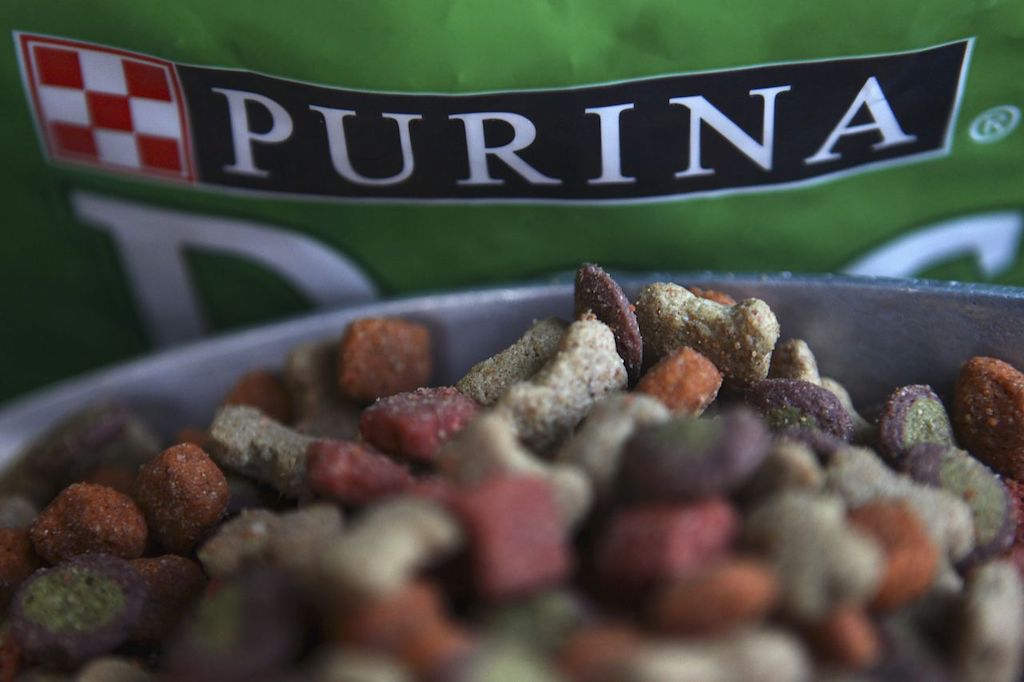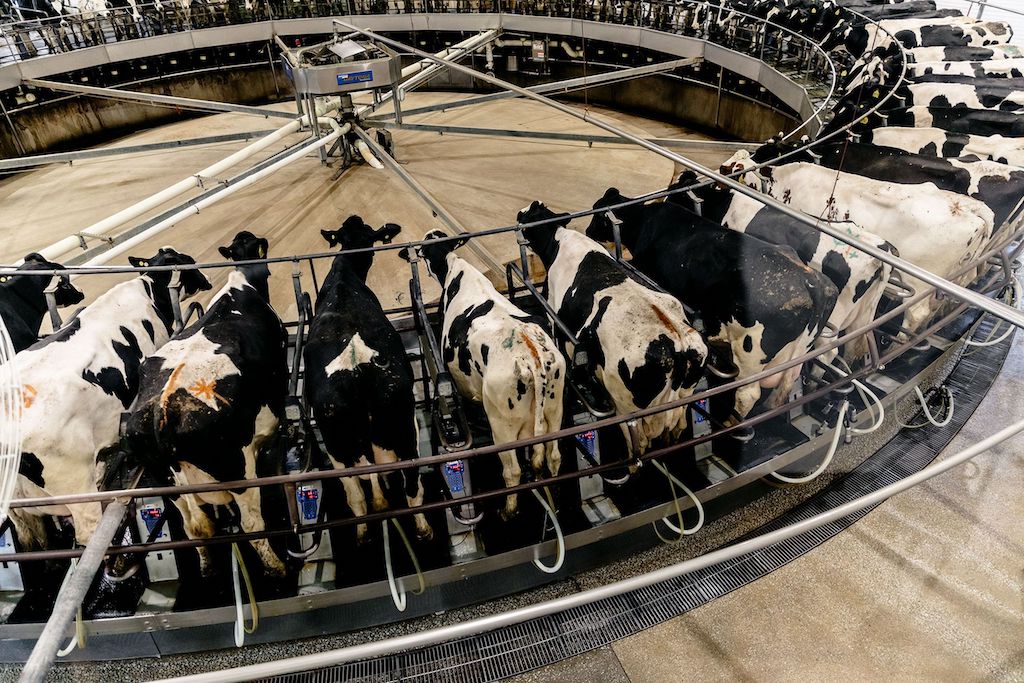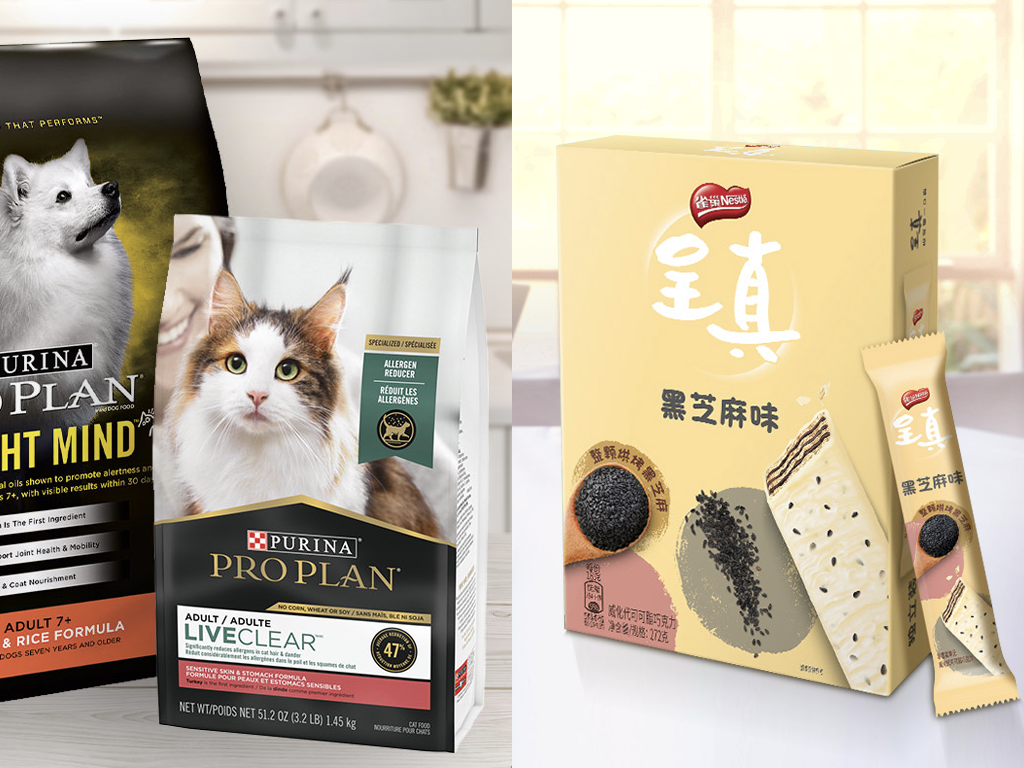Nestlé’s US$103M Tianjin Injection: China Plant-Based Factory News Hides Dairy Snack & Pet Food Investment
5 Mins Read
A Nestlé press release announcing a US$103.4 million (CHF 100 million) investment to grow its presence in China led to dozens of headlines across mainstream media outlets celebrating the FMCG giant’s vague commitment to build its first plant-based food facility in the country. What many of the headlines omitted to share or missed entirely is that the Swiss conglomerate will funnel a sizeable chunk of the funds into not so eco-friendly projects – namely an upgrade of its dairy confectionery production and an expansion its pet food line.
In a Chinese language press release shared on its website titled “Nestlé contributes to the transformation and upgrading of China’s food industry with a CHF 100 million investment in Tianjin”, the company said it plans to spend 100 million Swiss francs (approx. US$103 million) into the Chinese market, with the investment split between four projects. The projects include the further development of its Quality Assurance Centre; the boosting of production for its local dairy confectionery brand Nestlé Chengzhen Wafer; an expansion of its existing pet food line Purina; and finally, the launch a new plant-based manufacturing facility, the exact details of which were left undisclosed.
Many news outlets were quick to commend Nestlé for its proposed new Tianjin plant-based food factory, especially as it came on the heels of multiple major vegan and vegetarian partnership launches in China, including KFC’s plant-based fried chicken and Starbucks’s new vegetarian menu.
While some outlets misleadingly suggested that the entire investment sum would go into funding the plant-based venture, the reality is that the Swiss multinational also plans to expand some of its most unsustainable production lines in the country.
Nestlé’s existing pet food factory for its brand Purina will receive a significant capacity upgrade as a part of the investment, with planned new production lines to offer consumers premium veterinary diet and wet cat food products, all of which contain animal ingredients.

Pet food has a large environmental footprint that is often overlooked– one study found that pet food for dogs and cats drive as much as a quarter of the negative impact that animal meat production has on the planet, from land and water use, to fossil fuels and pesticides.
Besides ramping up pet food production, Nestlé’s China investment will also be funding the upgrade of its production line for Nestlé Chengzhen Wafer, a dairy-containing wafer product launched last year under its local confectionery brand Chengzhen.
Speaking anonymously, a prior Nestle employee who worked for the giant in Asia for over a decade told Green Queen that “news sites clearly misinterpreted the press release. Pet Food is a gigantic category with huge margins and future growth, and this is probably where most of the investment will go.” In his view, the mention of a plant-based facility was “a small risk diversification. Such a factory can be done even for US$2-5 million (assuming only packing and filling)”.
For years, scientists have called out animal agriculture, which includes livestock and dairy farming, as key drivers of carbon emissions and ecological degradation. According to a report from international nonprofit GRAIN, the 10 largest dairy corporations are responsible for the same amount of yearly greenhouse gas emissions as France’s total output.
This latest news from the food giant’s China arm appears to contradict its recent commitment to plant-based innovation across every sector and category under its brand portfolio. At a time when scientists have repeatedly called for an urgent transition towards a more sustainable and reliable food system to bolster crisis resilience and avert climate catastrophe, Nestlé’s decision to ramp up dairy production and consumption will have negative impacts that reverberate across the world.
Aside from its enormous environmental footprint, the Nestlé Chengzhen brand itself is problematic in its misrepresentations of the reality of dairy factory farming. In an advertisement debuted in 2017, consumers are led to believe that Nestlé dairy is produced in a humane way and suggests that only “good cows” make the milk they use.
Like in many other industrial dairy plants, cows in Nestlé farms across its supply chain have been found to be intensely confined, genetically manipulated and injected with antibiotics and hormones to produce more milk. Taken away from their mothers as early as 1 day old, some female cows are artificially inseminated soon after their first birthday, and some spend their entire lives in a cycle of giving birth, lactating, and inseminated again.

In an investigation by animal welfare nonprofit Animal Outlook, Martin Farms in Pennsylvania, which supplies dairy milk for Nestlé, was exposed for its senseless and violent abuse of mother cows and calves. Shocking scenes were revealed, from stabbing cows in the head to being cut open or burned alive with a hot iron in what the organisation called “some of the worst abuse we’ve ever documented”.
The significance of the food manufacturing giant’s decision to build a plant-based factory in China cannot be ignored, especially in a country where the meat-free market is predicted to see double-digit growth due to greater consumer awareness about health, livestock diseases and the environmental footprint of animal agriculture. According to Euromonitor, the plant-based industry in China alone could reach almost US$12 billion by 2023.
As Asia’s largest market and the most populous country in the world, it is vital to convince mainstream Chinese consumers to switch to plant-based options to ease the burden on our planet and combat climate change. Nestlé’s efforts to drive growth in China’s plant-based sector will no doubt help provide more affordable and accessible products that will bring about dietary change, especially given that price remains a priority for many consumers.
That being said, details about how much exactly would be allocated to the plant-based facility and the funds would be deployed remain scant. An investment announcement that promises a significant financial to existing unsustainable and unethical operations is hardly the holy grail, and we must hold powerful multinational corporations accountable if we hope to usher in a fairer, more sustainable, more secure global food system.
Lead image courtesy of Nestle.




